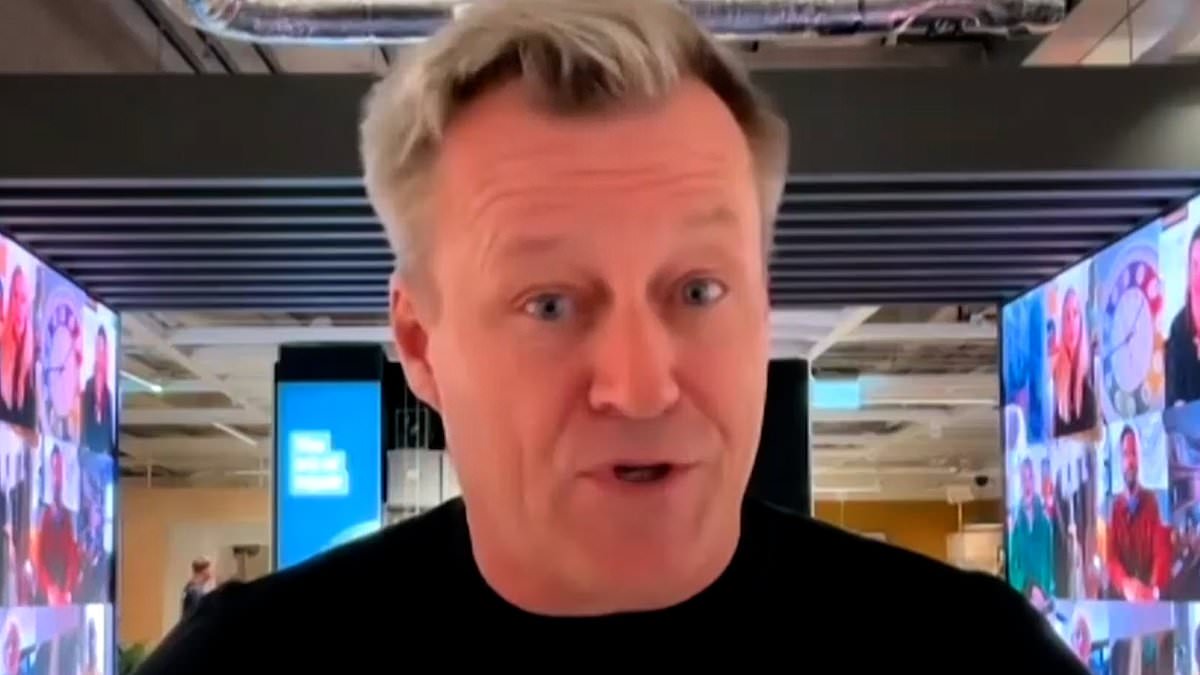For years, flat-pack fans across the UK have been proudly talking about their latest IKEA purchases whether it’s a Billy bookcase or a Malm chest of drawers.
But it turns out we’ve all been getting it completely wrong.
CEO Jesper Brodin was speaking on Sky News following the grand opening of the flatpack giants new £450million flagship Oxford Street store.
He joked: ‘I will allow you to say whatever you like, but it is true that the right Swedish spelling would be ‘eh-kay-ah’.
‘I’m going to say that when the founder, who was 16 years old when he founded the company and he went to the register and he didn’t have an idea for the name of the company so then they took his initials: Ingvar Kamprad.
‘So that is ‘ee’ in Swedish ‘eye’ in English. Elmtaryd, the farm he was from, and Agunnaryd, was the county.
‘So Ikea is basically the man himself and where he came from.’
The pronunciation drama comes as IKEA opens the doors to its much-anticipated Oxford Street store today.
The twice delayed £450 million shop is being seen by retail and council bosses as a crucial part of restoring Oxford Street to its former glory as one of the world’s premier shopping destinations.
It has taken over the former Topshop base in the capital to open a three-floor outlet selling around 6,000 products, of which 3,500 can be carried away by customers immediately, and the rest ordered for home delivery, click and collect or collection off site from lockers and other pick-up points.
Pictures of the opening show staff, in yellow and blue tops, cheering and waving the flags of the UK and Sweden to greet shoppers as the walk in.
London Mayor Sadiq Khan was also there to cut the ribbon and officially open the shops door for the first time. He smiled alongside staff surrounded by balloons.
However there has already been some skepticism over how customers are going to transport their goods home, as there is no parking.
So you will need to be able to carry away what you buy – meaning the 3500 items sold in the store weigh less than 15kg and are no more than 150cm in length.
It is the second UK high street store for the company – the first opened in Hammersmith in 2022 – which it described as a ‘milestone’ in a strategy to expand its presence in city centres with smaller formats, increasing accessibility for customers.
Another city centre store, in central Brighton, is set to open this summer, followed by three smaller stores in Chester, Harlow and Norwich this year.
The company said it had further specific areas of interest including in London, the Midlands and the North West, but no new locations to confirm yet.
Ingvar Feodor Kamprad was born in Pjatteryd, Sweden, on March 30, 1926, the son of modest farmers.
He was dyslexic but unusually bright and, aged five, was already a budding tycoon, selling matchboxes, Christmas cards, pens, wall hangings and berries he’d picked in the forests.
He founded Ikea when he was just 16 by using money his father gave him as a reward for trying so hard, despite his dyslexia, to register it.
Soon he was advertising in newspapers, selling furniture by mail order and sending it to the station on the milk cart.
By 1953, he had a showroom, but in 1956, when he saw delivery men removing a table’s legs to transport it more easily, he had his flat-pack brainwave and everything changed.
Ikea took off like a rocket. Meanwhile, his first marriage, to Kerstin Wadling, foundered after ten years and, in 1963, he married Margaretha Sennert, with whom he had three sons, Peter, Jonas, and Mathias.
By the Sixties there were Ikeas all over Scandinavia. When rivals tried to organise a boycott by his suppliers, he moved to Poland for materials and manufacturers and cut costs further.
After that, the Ikea revolution was unstoppable. The first U.S. Ikea — near Philadelphia — opened in 1986. A year later came the first British store, in Warrington (by the end of 2018, there will be 22 UK stores). Russia and China followed.
So next time you’re browsing flat-pack furniture or picking up a new lamp, remember: it’s Ee-kay-uh!
